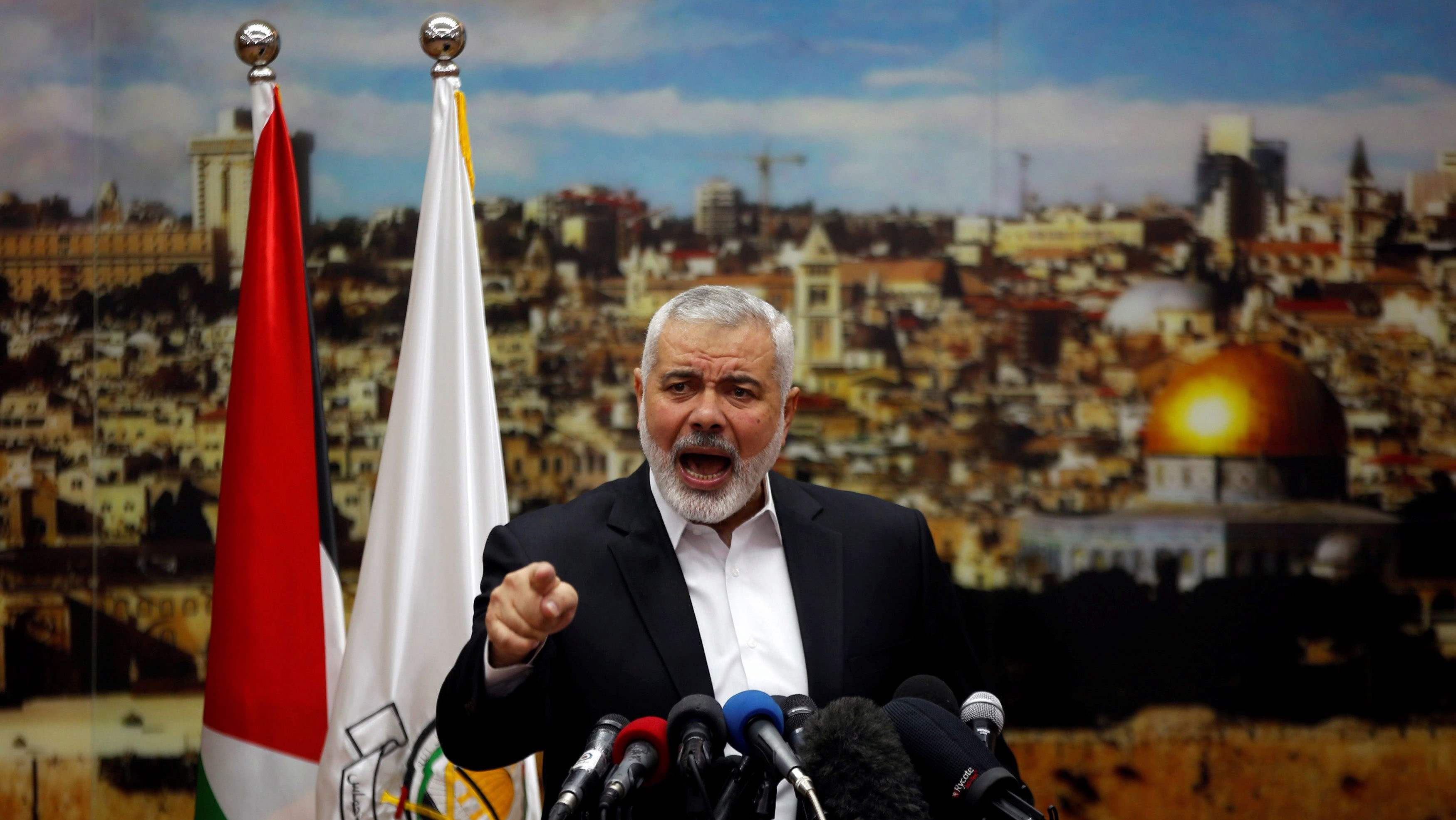
Politics
18:02, 08-Dec-2017
Jerusalem tensions: What is an intifada?
CGTN

The Islamist group Hamas has urged Palestinians to launch a new intifada against Israel in the wake of US President Donald Trump's recognition of Jerusalem as its capital and decision to move the US embassy to the city from Tel Aviv.
"We should call for and we should work on launching an intifada in the face of the Zionist enemy," Hamas leader Ismail Haniyeh said in a speech in Gaza on Thursday. In Lebanon, Hezbollah leader Sayyed Hassan Nasrallah backed calls for a new Palestinian uprising.
Intifada
An Arabic word literally meaning “shake off.” In the context of the Arab-Israeli struggle, it refers to Palestinian efforts to shake off Israeli influence and occupation through uprisings. Two intifadas have taken place to date.
Hamas does not recognize Israel’s right to exist and its suicide bombings played a prominent role in the last intifada, from 2000 to 2004.
First intifada
1987-1993
The first intifada began when four Palestinians were killed by Israeli troops at a checkpoint in Gaza. An unarmed 17-year-old was shot dead in the resulting protests.
The uprising largely involved unarmed young Palestinians throwing rocks and stones at Israeli soldiers, who responded with deadly force. More than 1,000 Palestinians and over 150 Israelis were killed over six years.
It ended in 1993 with the Oslo Accords between the Israeli government and the Palestine Liberation Organization (PLO).
Second intifada
2000-2004
The second intifada was largely led by Hamas. It started in 2000 after negotiations between Israeli Prime Minister Ehud Barak and PLO Chairman Yasser Arafat broke down.
A visit by Ariel Sharon, who served as Israel’s prime minister in 2001-2006, to the Temple Mount in Jerusalem helped spark the uprising. The complex includes the al-Aqsa mosque, the third holiest site in Islam. Two days later a 12-year-old was killed in a clash between Israeli troops and Palestinians.
Sustained violence followed, including shootings and suicide bombings. Around 1,000 Israelis and 3,200 Palestinians were killed during the intifada. It ended after the death of Arafat in November 2004.

SITEMAP
Copyright © 2018 CGTN. Beijing ICP prepared NO.16065310-3
Copyright © 2018 CGTN. Beijing ICP prepared NO.16065310-3